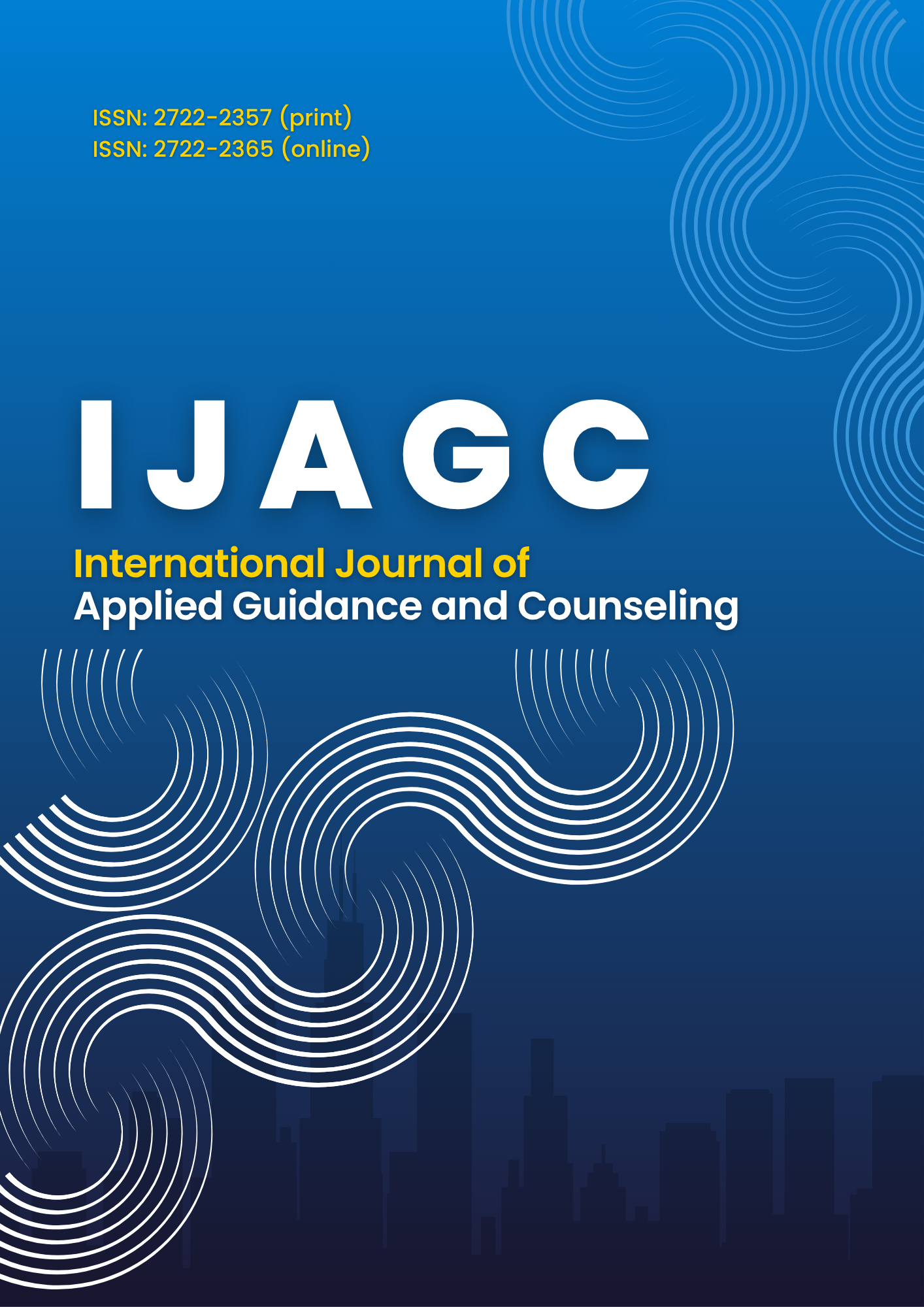The Effect of Group Guidance Services Using Experiential Learning Method on Students' Interpersonal Communication Skills
Group Guidance Services, Experiential Learning Method, Students' Interpersonal Communication Skills
DOI:
https://doi.org/10.26486/ijagc.v6i1.4418Abstract
This study aims to determine the Effect of Group Guidance Services with the Experiential Learning Method on Students' Interpersonal Communication Skills. The study is an experimental study. The design used is a Quasi experimental design with the type of Non-equivalent Control Group Design. The sampling technique used in this study is purposive sampling. While the data collection technique used is the Likert scale of interpersonal communication. The results of the validity test of the Likert scale from 54 items contained 8 invalid items because r count <0.05 and the reliability test obtained a value of 0.924 which means it has high reliability. The data analysis technique used is the Wilcoxon Signed Ranks test. The results of the Wilcoxon Signed Ranks test obtained a t-count of 36.7 and a t-table of -2803 and an asymptotic sig. (2-tiled) value of 0.005 <0.05, this indicates that Ho is rejected and Ha is accepted. namely "There is an Effect of Group Guidance Services with the Experiential Learning Method on Students' Interpersonal Communication Skills
Downloads
Published
Issue
Section
License
Copyright (c) 2025 Yeni Nur Sya'ban Ratri Dwi Mulyani, Endah Rahmawati, Anita Dewi Astuti, Novi Nur Aini

This work is licensed under a Creative Commons Attribution-ShareAlike 4.0 International License.
Authors who publish with IJAGC: International Journal of Applied Guidance and Counseling agree to the following terms:
Authors retain copyright and grant the Insight right of first publication with the work simultaneously licensed under a Creative Commons Attribution License (CC BY-SA 4.0) that allows others to share (copy and redistribute the material in any medium or format) and adapt (remix, transform, and build upon the material) the work for any purpose, even commercially with an acknowledgement of the work's authorship and initial publication in Insight. Authors are able to enter into separate, additional contractual arrangements for the non-exclusive distribution of the journal's published version of the work (e.g., post it to an institutional repository or publish it in a book), with an acknowledgement of its initial publication in Insight.
Authors are permitted and encouraged to post their work online (e.g., in institutional repositories or on their website) prior to and during the submission process, as it can lead to productive exchanges, as well as earlier and greater citation of published work (See The Effect of Open Access).












